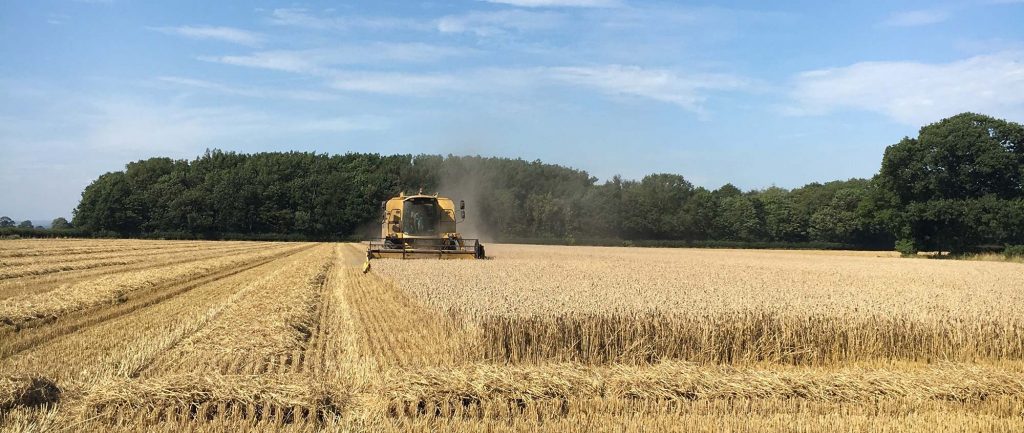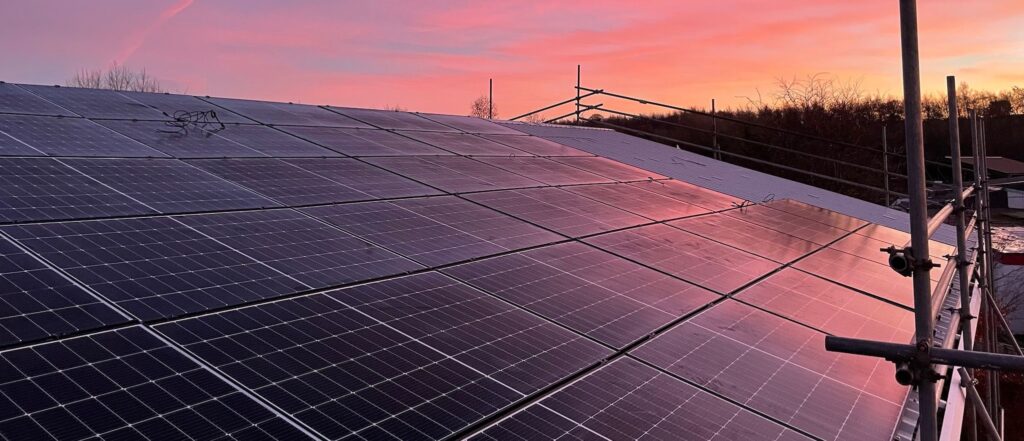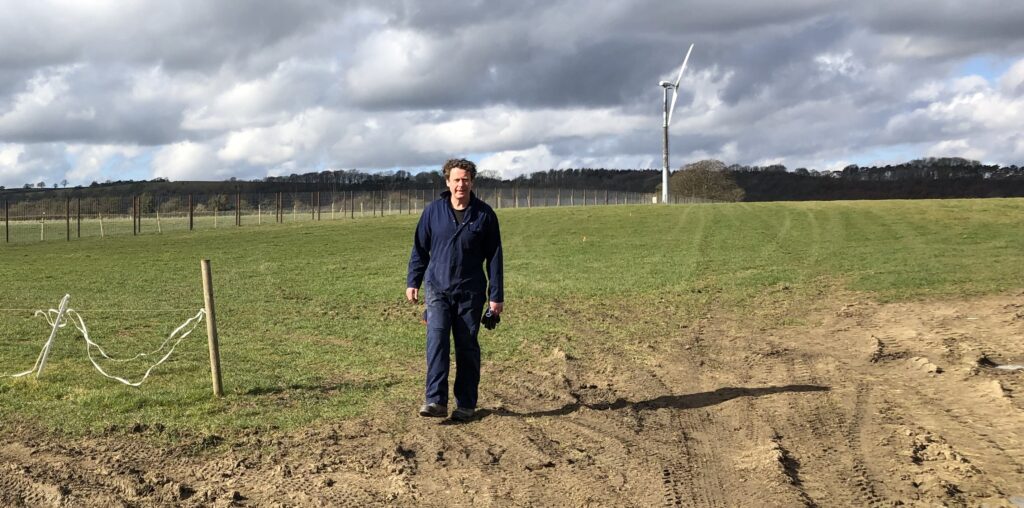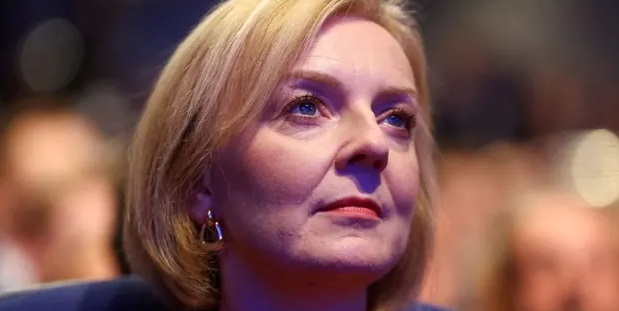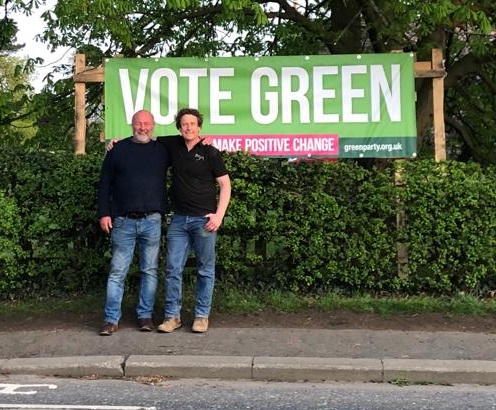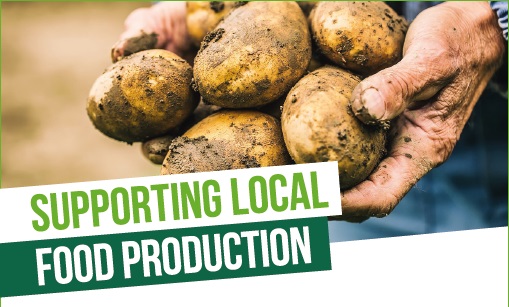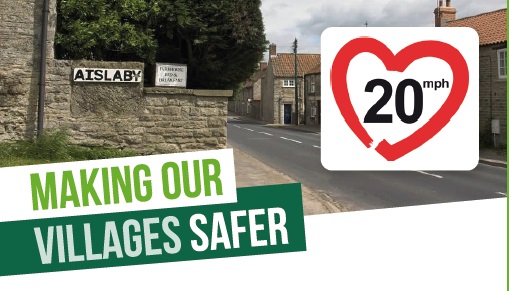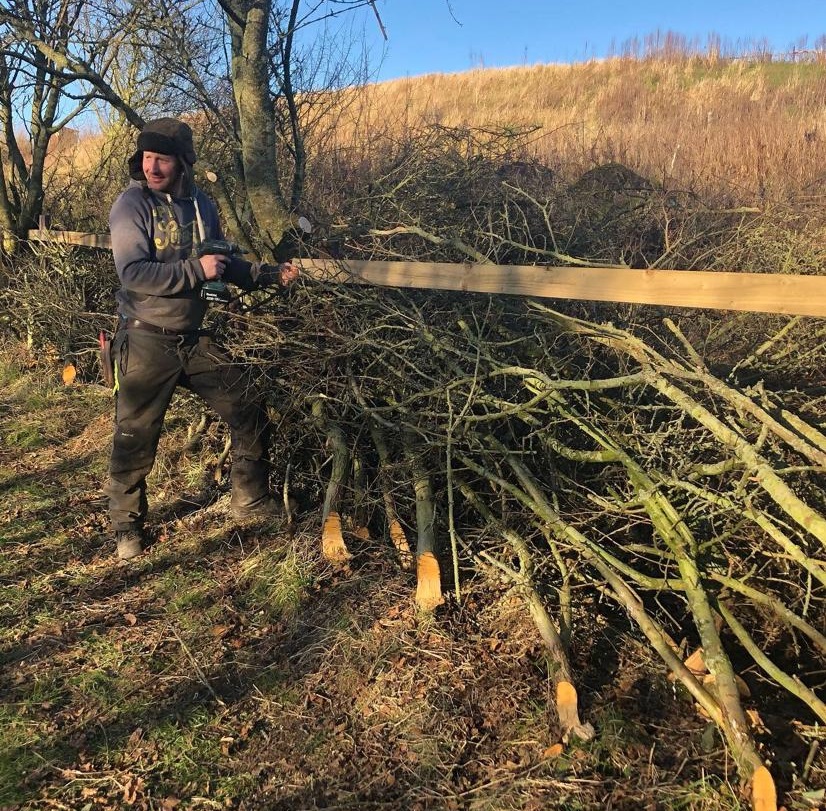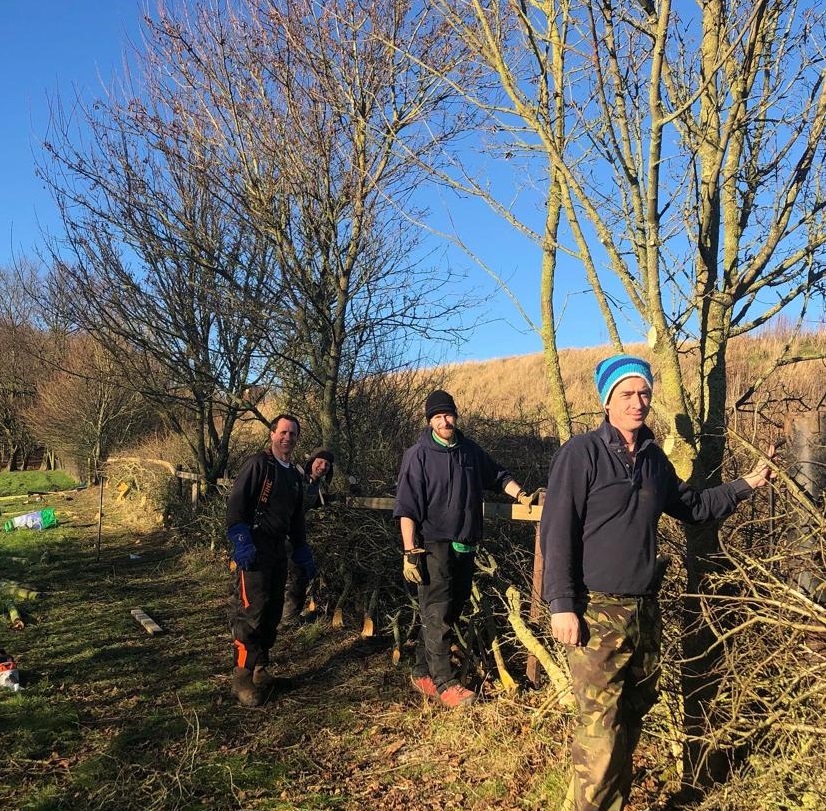As I continue to hear people out in Ryedale’s community expressing their disgust in the conservative leadership – their question of who can reliably represent their views is more valid than ever – following the absence of our elected MP Kevin Hollinrake when invited to vote for or against the privileges committee report, which brought Boris Johnson’s integrity into account.
The report confirmed that Johnson misled MPs and the Commons during his time as prime minister. In other words he lied. He twisted the truth. He deceived his party and his country, resulting in the ultimate sanction; now unable to access parliament as an ex-Prime Minister, a privilege offered by tradition to all MPs.
Funded by taxpayers money, this was a damning cross-party account which opens bare the complete dishonesty of the former Conservative leader. More worrying than the findings themselves, is the fact that our elected MP is not willing to vote on behalf of the people he represents across Malton and Thirsk’s constituency.
Whilst Boris Johnson insisted his birthday and ‘morale-boosting’ parties during lockdown were “essential”, there’s barely a person I’ve spoken to in the last three years, who didn’t go through some form of suffering during this same period of time; loss of loved ones; loneliness; financial hardship; health challenges; lack of education – and the list goes on.
Yet at this time – whilst he imposed rules of isolation on the rest of us – Boris Johnson was partying with his cronies at Downing Street, in the face of a worldwide pandemic.
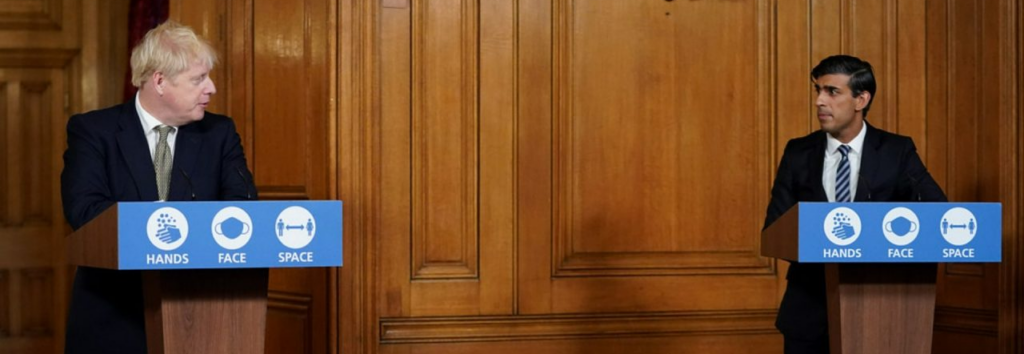
Despite being found guilty of five contempts of Parliament, both Malton & Thirsk’s elected MP, as well as our country’s current prime minister (pictured above), chose to withhold their vote and stand in the way of justice.
Where Were You Kevin?
As a life-long resident of Ryedale, who had the decency to respect the rules during lockdown – I am asking Kevin to explain his choice for not even turning up to cast his vote?
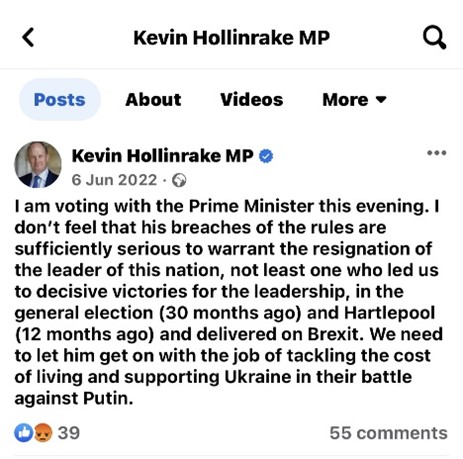
Kevin has made his support very clear for Boris Johnson during this period of political disgrace. We can all make misjudgements – but by casting his vote on the recent report, this would perhaps have gone some way in redeeming the unjust loyalty he showed for who is now, potentially the most false and untrustworthy prime minister we have ever had in office.
This vote was offered to our MPs to protect the integrity of parliament; of our government; of the democratic values we place trust in, when voting at an election. Yet with 63% of Tory MPs withholding their right to vote, there can realistically be no doubt that this party as a whole, is unwilling to act in the interests of our country.
Is there any going back?
To clarify, the Committee of Privileges who conducted the report, is made up of seven cross-party back benchers, selected to proportionately represent the members of the House as a whole; their collective role being to ‘investigate potential contempts and breaches of privilege as instructed by the House.’ This report scrutinised the facts and offered an unbiased outcome.
Surely if there was ever a time for our MP to stand up for the people who voted him in, this was it?
The findings of the report confirmed that Johnson “repeatedly misled parliament” about lockdown parties at Downing Street.
Boris Johnson was found guilty of five serious offences; how can any elected MP not have an opinion on these rulings? Surely this is the primary role of an elected politician – to have and express a viewpoint on behalf of their constituents.
How can Kevin justify his absence…
- Did he not have an opinion on his party leader, Boris Johnson’s proven lack of honesty?
- Did he believe the partying at Downing Street was acceptable, while the rest of us were locked down?
- Or is he simply more willing to protect his leader’s interests over those of the people who live in our area and who he’s representing?
Your Party or Your People?
It is no longer an opinion that Boris Johnson is a liar – it is fact; whilst all attempts to defend him were completely dismantled in any parliamentary debates, this was confirmed when 98% of those who did vote, supported the findings of the report.
Had his dishonesty been left unchecked, this would have further contaminated the government and allowed deceit to become an acceptable trait within our political constitution.
Sadly 63% of conservative MPs who didn’t vote – including Malton and Thirsk’s elected MP – have confirmed they are content with this standard of leadership.
Our MP’s display of loyalty to his leader, who betrayed our country, is nothing less than spineless. Those who voted Conservative and whose MP did not vote, have essentially been politically abandoned and deserve more.
Many of these politicians fought for parliamentary sovereignty, removing us from Europe to take back control – yet when given the chance to exercise, on such a personal level, what they have fought for – they surrendered it.
The shortcomings of the Tory party are endless; from Austerity and Brexit to the failings of ministers, constant resignations and policy corrections. This country is in desperate need of change, and I urge people to think hard about who they can trust to represent their needs in future.
Please comment below and tell us if our elected MP represented your interests fairly by withholding his vote on the privileges committee report.

